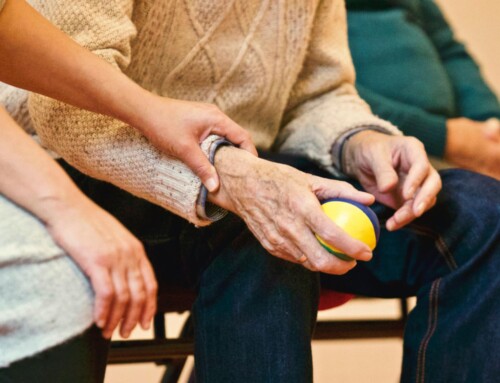
Clinical Care Coach Corner: Written by Lourdes Cabret, LMHCA
“Caring for myself is not self-indulgence, it is self-preservation, and that is an act of political warfare.” – Audre Lorde
In the fast-paced and demanding world we live in, prioritizing self-care has become more crucial than ever, especially for dementia caregivers. Caring for a loved one living with memory loss or dementia is a noble and demanding responsibility. The emotional, physical, and mental toll it can take on caregivers is immense. In the midst of providing unwavering support to those living with dementia, caregivers often neglect their own well-being. This piece aims to shed light on the importance of self care for caregivers and offers practical strategies to navigate the challenges while maintaining personal health.
Ways to Practice Self Care for Caregivers
- Physical Self-Care: Physical well-being is the cornerstone of self-care. Adequate sleep, regular exercise, and a balanced diet are essential components. Establishing a consistent sleep routine, engaging in physical activities that bring joy, and fueling the body with nutritious food are foundational aspects of physical self-care.
- Acknowledge Your Emotions: Caregiving for someone with dementia can elicit a range of emotions – from love and fulfillment to frustration and sadness. It is crucial for caregivers to recognize and validate these emotions. Seek support from friends, family, or a support group to share your feelings and experiences.
- Mental and Emotional Self-Care: Caring for one’s mental and emotional health is equally vital. Practices such as mindfulness meditation, journaling, and seeking professional counseling provide avenues for self-reflection and emotional release. Developing resilience, managing stress, and cultivating a positive mindset contribute significantly to mental and emotional well-being.
- Learn to Delegate: Recognize that it’s okay to delegate tasks. Friends, family, or hired help can assist with certain responsibilities, giving you time to focus on your own needs. Delegating does not signify weakness; rather, it’s a smart way to prevent burnout.
- Take Breaks and Rest: Caregivers often feel guilty about taking breaks, but self-care necessitates time for rest and relaxation. Arrange for respite care to allow yourself a break. Even short breaks can rejuvenate your mind and body, enhancing your ability to provide quality care.
- Setting Boundaries: Establishing and maintaining healthy boundaries is a key aspect of self-care. This involves learning to say ‘no’ when necessary, recognizing personal limits, and creating space for oneself. By setting boundaries, individuals protect their time and energy, fostering a healthier balance between personal and professional life.
- Social Connections: Building and maintaining meaningful social connections is a powerful self-care strategy. Spending time with loved ones, fostering positive relationships, and seeking support when needed can contribute to a sense of belonging and emotional well-being. Social connections act as a buffer against stress and provide a support system during challenging times.
- Educate Yourself: Knowledge is power. Take the time to educate yourself about dementia and its progression. Understanding the challenges and potential issues that may arise can help you anticipate and navigate them more effectively.
- Engaging in Hobbies: Pursuing hobbies and activities that bring joy and fulfillment is a valuable self-care practice. Whether it’s reading, painting, gardening, or playing a musical instrument, engaging in activities that align with personal interests fosters a sense of purpose and satisfaction.
In the selfless act of caregiving, caregivers often forget to care for themselves. Recognizing the importance of self-care is not only beneficial for the caregiver but also for the individual living with dementia. By prioritizing physical, emotional, and mental well-being, caregivers can sustain their ability to provide compassionate and effective care. Recognizing the importance of self-care is not only an investment in personal health but also a commitment to nurturing a more balanced and fulfilling existence. As we prioritize self-care, we not only benefit ourselves but also contribute to creating a healthier and more compassionate society.
Check out our free support groups, education classes, social activities, & more. You may also call our office at 858.492.4400 to speak with one of our Clinical Care Coaches (Spanish speakers available).
Our “Clinical Care Coach Corner” series is where our team of dementia experts weigh in on unique topics and provide insight that can help people impacted by dementia.
RECOMMENDED: An Important Tool in Your Care Partner Toolbox: Support Groups




